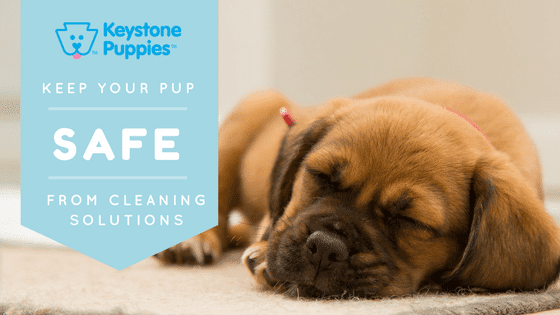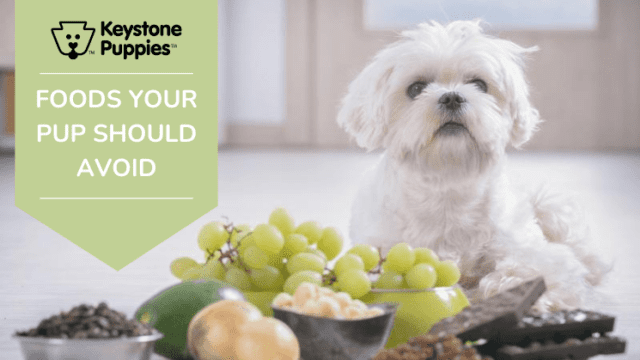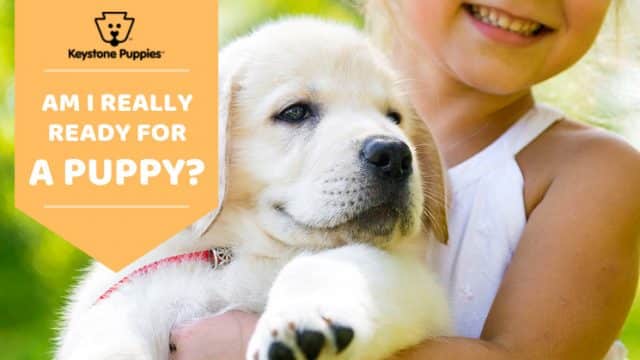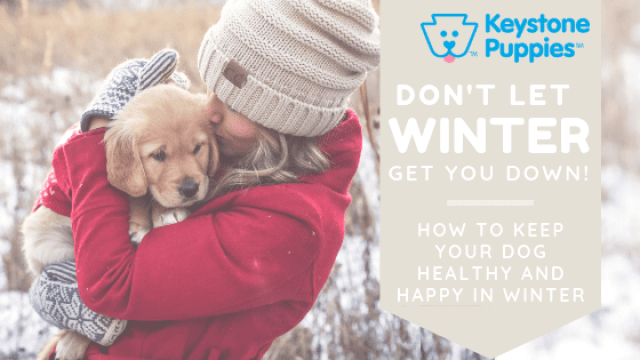Spring Cleaning: Keep Your Pup Safe From Cleaning Solutions

Spring is here, and for many of us that means Spring cleaning. The warm weather and open windows inspire us to scrub away the dust accumulated over the long winter. Our instincts tell us that cleaning is a healthy activity, but if you have a pup in your home there are some cleaners you should avoid or eliminate altogether.
When evaluating the safety of any product in your home, it’s important to remember that when it comes to allergens and even poisons, you must keep three variables in mind:
- The size and age of the dog
- The concentration of the substance
- How often the dog is being exposed to the substance
The Size and Age of the Dog
Puppies are more susceptible to toxins than older dogs. Puppies not only have under-developed immune systems, but they’re also small enough that even minor quantities of toxins can have serious consequences. Puppies’ insatiable curiosity also makes exploring new substances more inviting. Puppies explore new things with their nose and mouth. That means that puppies are more likely to lick, chew, or even swallow solutions. If you have a pup under 1 year of age in your home, it’s wise to be discriminating about the products you allow into your home.
While all dogs should be kept away from potential toxins, smaller breeds like Jackapoos and Havanese are more at risk than larger breeds like German Shepherds and Tibetan Mastiffs because their small bodies react to even minute amounts of toxins.

The Concentration of the Substance
Many substances in common cleaning products are lethal to dogs in large doses. However, they are formulated into commercial cleaning solutions in such small percentages that these substances rarely present serious problems to pets. For example, bleach is a cleaning agent that causes serious issues if ingested. However, you can safely use bleach to sanitize pet areas if you let the area air out completely before allowing the dog back in.
Another example is carpet freshener. Puppy paws can become irritated if they come into direct or repeated contact with carpet freshener. If your pet eats even minor amounts, it can cause serious stomach upset. However, your puppy should be unaffected if you use carpet freshener in sparingly, and then thoroughly vacuum up the excess.
Most commercial cleaners can be used in your home, as long as you follow instructions, and don’t give your pet access to concentrated amounts. Click here to read more from the ASPCA about potentially harmful cleaning products.
Always keep all cleaning products and chemicals locked up or stored well out of reach. This includes natural cleaning products like vinegar. Keep mops, rag, wipes, or clothes used with cleaning solutions stored safely. Stick to this rule of thumb: if you clean with it, make sure your pet can’t touch, lick, or chew on it.
How Often Your Pup is Exposed to the Substance
Rumors circulate about certain cleaners or air fresheners being harmful to pets. In most cases, when used in moderation, commercial cleaning products will not harm pets. However, using cleaning products frequently, or in large amounts, can have adverse effects on your pets over time. Remember that puppies are even more susceptible to side effects, so reduce the use of commercial cleaners in your home during your pup’s first year. If your pet has allergies, avoid the use of cleaning solutions with fragrances, air fresheners, scented oils, or scented candles.

Consider Replacing These Products
While most commercial cleaning products, when used correctly, will not harm your pets, some present real dangers. If you have a pet in your home, consider replacing cleaning products with ammonia, chlorine, glycol ethers or formaldehyde. Drain cleaners are especially toxic if ingested by dogs or humans, so keep them locked up. Get a list of other potentially toxic substances from PetMD by clicking here.
Suspect Danger?
If you suspect your pet has ingested a possibly harmful substance, call the Pet Poison Helpline (1-855-213-6680) or call your veterinarian immediately. Do not induce vomiting or offer any antidotes without the advice of a veterinarian or poison specialist.
*****
Keystone Puppies cares about keeping your pet safe. When bringing a new pet into your home, lock up any questionable substances, and keep potentially harmful products stowed well out of reach. If you’re not sure what breed of puppy you want to bring into your home, research over 200 different breeds here. If you’re ready to find your new pup, get started here.






